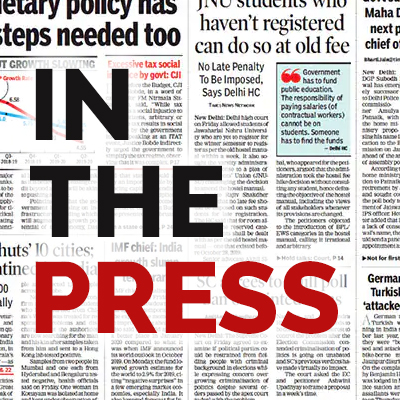Historic break with Jewish tradition for mixed-faith UK weddings

Raj Holness: The Only Arranged Marriage
October 4, 2020
Sarbjit Kaur Athwal: Shamed
October 5, 2020
Historic break with Jewish tradition for mixed-faith UK weddings
Rabbis back controversial move to allow ceremonies under symbolic canopy
Harriet Sherwood
Sun 4 Oct 2020
In a controversial break with centuries of tradition, some British Jews will be permitted to marry non-Jews under a chuppah, a symbolic canopy, from next weekend.
Liberal Judaism will allow the pioneering mixed-faith ceremonies following unanimous support from its rabbis. The new policy will come into effect from the festival of Simchat Torah, which starts at sunset on Saturday, 10 October. Until now in the UK, only two Jewish people could have a marriage ceremony or rabbinical blessing under a chuppah.
“This is really significant, but there’s no question there will be controversy over it. A chuppah is such a distinctive image in a Jewish marriage, and there will be some people who feel that certain things should be just for Jews,” Rabbi Charley Baginsky told the Observer.
“But Liberal Judaism has always led the way on issues of inclusion, and we have been moved by the stories of our congregants. We’re saying non-Jews are not just tolerated, but are part of our larger community and are helping to build Jewish families and homes.”
A chuppah – a cloth supported by four poles, carried by family members or close friends – is a central feature, along with stamping on a glass, of a Jewish wedding. But it is a custom rather than a halachic (religious law) requirement, said Baginsky.
Liberal Judaism represents about 10% of British Jews who attend synagogues. Like Reform Judaism, another progressive denomination, it permits women rabbis and same-sex marriages, and says the Jewish line can come from either a person’s mother or father.
According to a study in 2016 by the Institute of Jewish Policy Research, more than a quarter of British Jews who are married or co-habiting have non-Jewish partners.
It found that Jews married to or living with non-Jews had a weaker sense of Jewish identity. About half of “exogamous” Jews celebrated Jewish festivals with their families, compared with 93% of “endogamous” Jews; and 11% kept kosher compared with 69% of Jews married to or living with other Jews.
According to Baginsky, “mixed-faith relationships are a reality. It just depends on whether you look at that as adding to our community and enhancing it, or whether you look at it as diluting our community and therefore we need to put more barriers.”
Helen Goldhill, who is Jewish, and Lucie Spicer, a non-Jew, said the move to allow ceremonies and blessings under a chuppah for couples like them was “wonderful”. “I always wanted a Jewish ceremony when we get married next July,” said Goldhill. “The chuppah is a beautiful symbol of a life and home together.”
Spicer said: “Being Jewish is a big part of Helen’s identity and life, and we are joining our lives together. It would have been very sad if certain aspects of the Jewish marriage ceremony were not available to us.”
Rabbi Aaron Goldstein, chair of the Conference of Liberal Rabbis and Cantors who voted on the historic change, said: “This is both a common sense and courageous decision to allow our rabbis and cantors discretion to use a chuppah, a symbol of the creation of a Jewish home blessed by God.”
